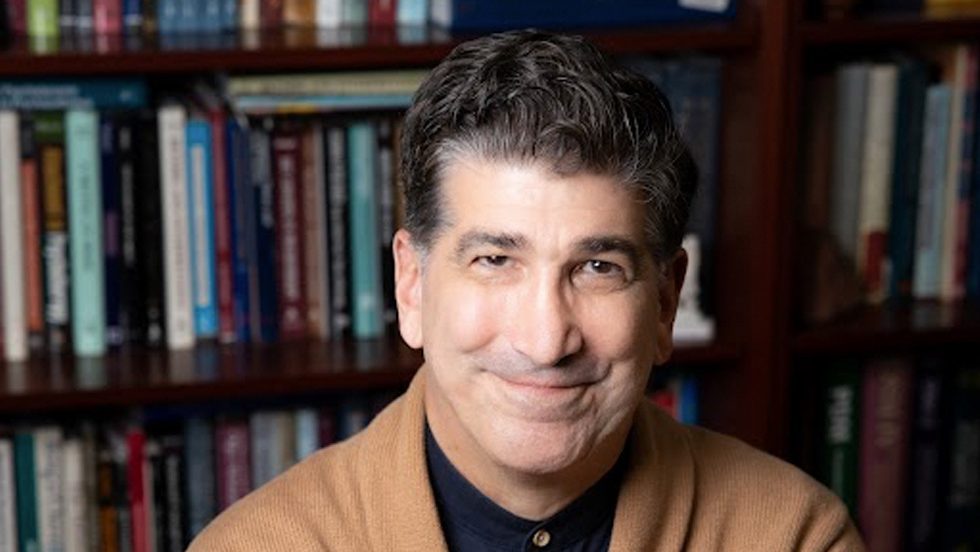
J. Christopher Muran, PhD, began his new role as dean of the Gordon F. Derner School of Psychology on August 7.
Prior to joining Adelphi 14 years ago, Dr. Muran was chief psychologist in the Department of Psychiatry and Behavioral Sciences at Beth Israel Medical Center (now Mount Sinai) for 15 years and has held numerous academic leadership positions at prestigious institutions around the globe.
As he begins his new role after serving as associate dean and director of Derner’s PhD in Clinical Psychology program, Dr. Muran shares what brought him to the University 14 years ago, highlights his professional achievements and experiences and discusses some of what he plans to accomplish. These goals include encouraging greater faculty engagement, creating cohesion among Derner’s myriad programs and fostering dialogue among multiple disciplines and perspectives at the University.
What initially attracted you to Adelphi becoming a faculty member in the Gordon F. Derner School of Psychology?
Having spent almost 20 years working in a major metropolitan medical center, I was looking for a new challenge, and I had long-standing curiosity about working in an academic setting. My work in a medical setting included training and supervision of PhD students, so when I negotiated coming to Derner, I was especially keen on directing its PhD program in clinical psychology. As to my interest in coming to Derner, I have long been aware and impressed by its storied history and unique standing as a school of psychology.
What do you think makes Derner’s programs and focus stand out from its peers?
Derner has had quite a legacy as the first university-based professional school, one that has been a center for psychoanalytic thought and has made pioneering contributions to psychotherapy integration. Originally comprising programs in clinical psychology and postgraduate psychoanalysis, today it is much more—with professional programs in school psychology and mental health counseling as well as academic strength in the cultural, developmental and neurosciences. Derner is quite pluralistic and our differences can be our superpower!
What experiences from your other leadership roles align with your new role as dean?
I have had significant experience developing clinical, training and research programs in my previous professional positions at a major medical center, and as program director of our PhD program, I have overseen two successful APA [American Psychological Association] accreditation cycles and major revisions of our admissions, curriculum, evaluation protocol, tuition cost, financial aid and student and faculty engagement. I have supported two previous deans in the administration of our School and its various programs, including two stints as interim dean. So, I have a pretty good understanding of Derner and Adelphi.
What are some of your goals and priorities as dean near and longer term?
My goals and priorities include improving communication and bringing more cohesion among our many programs and faculty. In addition to maintaining our standards for excellence in many of our programs, we have a couple of programs in the growing stage that need to be nurtured on their way to accreditation. In addition to faculty recruitment, another meaningful way to support them is to promote faculty involvement across programs. We have also expanded our administrative structure to promote faculty engagement.
How do your goals align with Adelphi’s strategic goals and Derner’s mission?
My goals align perfectly with our University’s strategic goals regarding academic distinction and inclusive community. For me, these goals are interdependent: The pursuit of one will advance the other. Our academic excellence, for example, is best served by promoting greater community among our faculty and students. Given our current scope and my ambitions for Derner, I think we’re positioned better than ever to realize our overall identity as an integrative, empirically informed school of psychology with a long psychoanalytic tradition and commitment to social justice.
How has the discipline and study of psychology evolved?
The pursuit of psychology at the undergraduate level and then graduate level has increased tremendously over the years, largely because we have become more psychologically minded but also because any degree in psychology can lead to a plurality of opportunities. An undergraduate major in psychology allows graduates to pursue paths in education, social and welfare services, health services and industry, in addition to psychology—look at “the list” posted by the American Psychological Association. Take, for another example, an advanced degree in clinical psychology: It can lead to careers not only in practice and research, in healthcare and academic settings, but also in executive and organizational consultation. Psychology can be a platform for a great range of possibilities.
What are some important themes or trends you are seeing in higher education?
Courting curiosity and dialogue about differences! This is a theme that has always been important to me for a variety of reasons, as a result of many personal and professional experiences. Accordingly, knowledge is advanced by fostering dialogue among a plurality of perspectives. By confronting other perspectives and coming to understand them, we can clarify differences (in addition to similarities) in a more nuanced way and learn to enrich our point of view. We can move to a new, shared understanding of a subject matter that is more differentiated and articulated than the separate views with which the dialogue began. This is relevant for how we negotiate interdisciplinary differences, but also how we negotiate individual differences—ultimately, how we can understand and help the human condition.